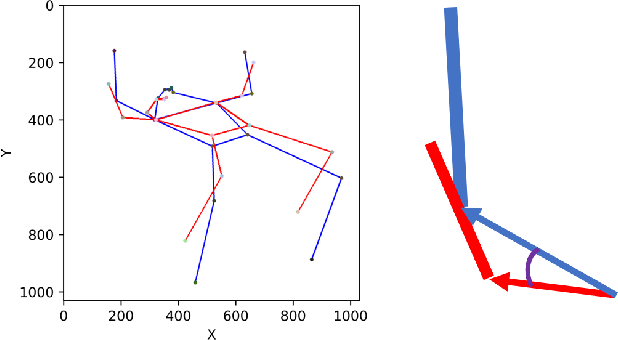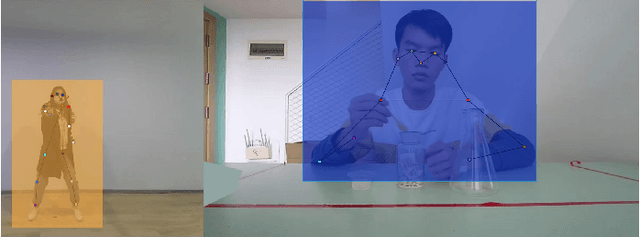Huiliang Shang
A Spatial-Temporal Transformer based Framework For Human Pose Assessment And Correction in Education Scenarios
Nov 01, 2023



Abstract:Human pose assessment and correction play a crucial role in applications across various fields, including computer vision, robotics, sports analysis, healthcare, and entertainment. In this paper, we propose a Spatial-Temporal Transformer based Framework (STTF) for human pose assessment and correction in education scenarios such as physical exercises and science experiment. The framework comprising skeletal tracking, pose estimation, posture assessment, and posture correction modules to educate students with professional, quick-to-fix feedback. We also create a pose correction method to provide corrective feedback in the form of visual aids. We test the framework with our own dataset. It comprises (a) new recordings of five exercises, (b) existing recordings found on the internet of the same exercises, and (c) corrective feedback on the recordings by professional athletes and teachers. Results show that our model can effectively measure and comment on the quality of students' actions. The STTF leverages the power of transformer models to capture spatial and temporal dependencies in human poses, enabling accurate assessment and effective correction of students' movements.
Cross-modal Place Recognition in Image Databases using Event-based Sensors
Jul 03, 2023Abstract:Visual place recognition is an important problem towards global localization in many robotics tasks. One of the biggest challenges is that it may suffer from illumination or appearance changes in surrounding environments. Event cameras are interesting alternatives to frame-based sensors as their high dynamic range enables robust perception in difficult illumination conditions. However, current event-based place recognition methods only rely on event information, which restricts downstream applications of VPR. In this paper, we present the first cross-modal visual place recognition framework that is capable of retrieving regular images from a database given an event query. Our method demonstrates promising results with respect to the state-of-the-art frame-based and event-based methods on the Brisbane-Event-VPR dataset under different scenarios. We also verify the effectiveness of the combination of retrieval and classification, which can boost performance by a large margin.
 Add to Chrome
Add to Chrome Add to Firefox
Add to Firefox Add to Edge
Add to Edge